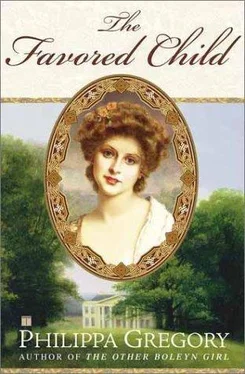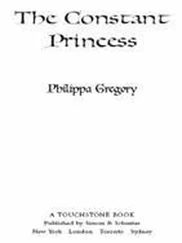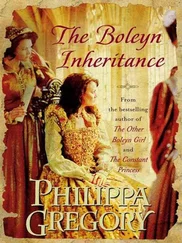It was a pretty room. When I was a little girl, its only pleasant feature was the view of the tossing green trees of Wideacre Park, and the familiar clear smell of flowers. But since John had come home, the room had been carpeted and furnished with the light white and gold furniture which Mama loved. A crystal bowl of roses stood in the fireplace, her silver-backed mirror, brush and comb stood on the neat dressing-table, reflected in the winged mirror above. I peered superstitiously at the mirror. I could not believe that I would not see her face there. I would never see that beloved face again.
I went across the room and looked out of the window. I shut my eyes and pressed my forehead to the cold glass. The summertime smells of Wideacre wafted in around me and stirred the curtains at my side. Everything was warm and green and growing. I could not believe that among all this life my mama lay still and cold.
I would not believe it. I screwed my eyes up tighter and then turned and opened them to look into the room. I was certain that she would be there, sitting on the little stool before the mirror, or nipping a wilted flower from the vase. I willed her to be there with all my strength. I could not believe that she, who had been there so constantly and so reliably for all my childhood, should suddenly and so unexpectedly be gone.
‘Mama!’ I whispered into the silence of the room.
There was no reply.
She had gone indeed, and I was alone.
I left her room with the curtains blowing and the window open. I went downstairs to the parlour. I stumbled against the table in the sudden gloom and I crossed the window and threw back the curtains.
The maid had not been in here to clean and tidy. She had drawn the curtains but left the room as it had been when my lie split our world, and killed my childhood, and broke my mama’s heart. The chair to which I had clung for support was still askew. The seat where John had wearily dropped was still at the fireside. Around my mama’s chair, in a shower of gold, like wedding-day rose petals, were the little flowers she had cut from the front of her gown while she sat with her head down and learned her daughter was a whore.
I dropped on my knees on the hearth rug and started to pick them up, like some lost Ophelia in a travelling theatre. When my hand was full, I held out my silk apron like a country girl and heaped them in it. Every scrap of material I meticulously gathered, until I had them all. Then I took them, as carefully as new-laid pheasant’s eggs, held in my apron, up the stairs to my room.
I wrapped them in soft white tissue-paper, and I laid them in my top drawer. Even they smelled very faintly of lilies.
I clung to the chest of drawers and wept as though my heart would break.
Their funerals were to be on Saturday, the fourth day after the harvest when I had reaped the Wideacre corn and Lacey ruin in one sunny afternoon. My Grandmama Havering had arranged that there would be an announcement of our private marriage in the newspapers on the following Monday. Richard thought that Ralph should be told before the newspaper announcement, and I agreed.
I agreed in silence with a nod. I felt weary to my very heart with the quiet wordless mourning for my mama. It was doubtless foolish, but I believed that I would never be happy again. Perhaps I was wrong not to seek comfort from my grandmama, or from our vicar, or even from Richard, but I felt that I should never find comfort. No one would ever again mother me, now that my mama was gone.
So, for the first time in many months, I did not think about Wideacre, nor what Acre might be thinking or doing. When Richard told me that he had ordered Ralph to come to the Dower House that evening, I nodded as though I did not much care.
Ralph came in, stepping carefully across the polished hall as if he did not want to wake a sleeping invalid. But though my mama lay in the house, nothing would waken her again. Her coffin was upstairs in the pretty room which smelled of lilies. The lid was nailed down already; I could not even kiss her goodbye on her cold cheek, for they told me she had been too badly injured.
I tried not to think of that.
‘I am sorry, Julia,’ Ralph said. He took my hand in his and smiled down at me; his dark eyes were very gentle.
‘Thank you,’ I said awkwardly.
‘She wouldn’t have been in pain, you know,’ he said softly. ‘I have seen men shot at close range. She would have died at once.’
I flashed a look up at him. ‘You are sure?’ I asked. ‘You are not just saying that to make me feel better?’
Ralph shook his head. ‘Nay,’ he said. ‘I’d not lie to you on such a subject. She would not have had a lot of pain. Nor John.’
Richard interrupted us. ‘Will you come to the library, Mr Megson? You and I have business to discuss.’
Ralph nodded and stepped back for me to precede them into the room.
‘Julia need not trouble herself with this,’ Richard said smoothly. ‘She can sit in the parlour.’
Ralph was suddenly still, as wary as a hare in bracken. ‘Miss Lacey should be present,’ he said. ‘She is joint heir.’
‘Not any longer,’ Richard said. He smiled at Ralph and their eyes locked. ‘I don’t do business in the hall,’ Richard said coolly. ‘Will you come into the library, Mr Megson?’
‘After you, Julia,’ Ralph said firmly. Even in the numb haze I noted that he used my Christian name and I heard his appeal to me to stand firm for Acre.
I glanced at Richard. He gave me a quick frown which should have warned me to stay out of this struggle between him and Ralph. But Ralph was my friend, and Acre was my village. However weary I might be, however ill with mourning, they had a call on me.
‘I’ll come in,’ I said, and walked past Richard into the library and sat at the side of the table. Richard took the seat at the head, where Uncle John had always sat, and Ralph sat opposite me, facing the bookcases. The window behind Richard was open; outside a thrush was singing loudly.
‘We have some news which may surprise you,’ Richard said sweetly. ‘Miss Lacey and I are married. We were married privately some months ago. And Miss Lacey’ – he broke off and smiled—‘I should say, Mrs MacAndrew, is expecting our child.’
Ralph gave me a hard look. ‘You are pregnant?’ he said baldly.
I nodded.
‘And married?’ he said.
No one corrected his inversion of Richard’s statement. We all knew that Ralph assumed I had married because I was pregnant, and not even Richard had the gall to brazen it out.
‘Yes,’ I said through sour lips.
Ralph dropped his dark head in his hands for a moment. ‘Oh, Julia!’ he said sorrowfully. ‘I wish you had come to me.’
Richard let that indiscretion go. ‘As Julia’s husband, I am now the squire and the sole owner of Wideacre,’ he said. ‘I called you in, Mr Megson, to ask you to convey the news to the village. There will be an announcement in the newspapers on Monday. I think since we are in mourning, that there should be no celebrations in Acre.’
Ralph scowled very darkly. ‘No, indeed,’ he said dourly. ‘There will be no celebrations that you have married Miss Lacey and made yourself the new squire.’
Richard nodded, and let that go too. ‘I shall inherit the MacAndrew fortune, I do not doubt,’ he said, ‘and, of course, I have total control over my wife’s fortune too. I plan no immediate changes, Mr Megson. You may tell them that in Acre. I am satisfied thus far with how the estate is being run.’
‘You’ve not seen the wills,’ Ralph said. ‘It may be that there are guardians set over the two of you.’
‘I’ve not seen them,’ Richard conceded, ‘but I believe that guardianship is invested in either Julia’s mama or my papa. There was no provision for them dying together.’
Читать дальше
Конец ознакомительного отрывка
Купить книгу












